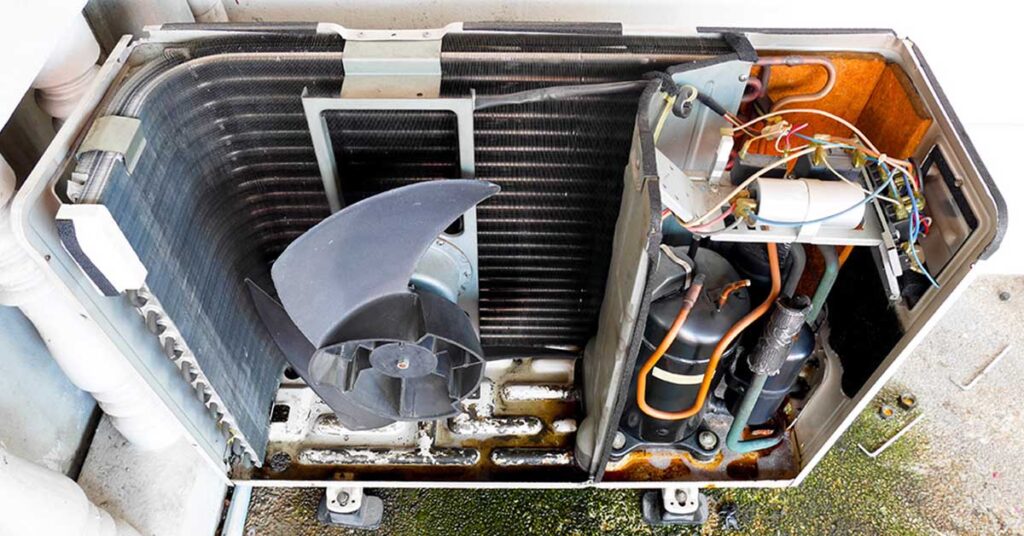The HVAC compressor serves as the heart of your heating, ventilation, and air conditioning system, playing a pivotal role in regulating temperature and maintaining comfort within your home or commercial space. Understanding the lifespan of an HVAC compressor is crucial for homeowners and property managers, as it impacts maintenance schedules, budgeting for replacements, and overall system reliability. In this blog post, we’ll explore how long does an HVAC compressor last, effective maintenance practices, and signs that indicate it may be time for a replacement.
How Long Does an HVAC Compressor Last?
The lifespan of an HVAC compressor can vary depending on several factors, including the quality of installation, operating conditions, usage patterns, maintenance practices, and the quality of the equipment itself.
1. Quality of Installation
Proper installation by certified HVAC professionals is crucial for ensuring the longevity of your compressor. A well-installed system will operate efficiently and reliably, minimizing strain on the compressor and extending its lifespan. Conversely, poor installation practices, such as incorrect sizing, improper refrigerant charge, or inadequate electrical connections, can lead to premature compressor failure.
2. Operating Conditions
Environmental factors play a significant role in determining compressor lifespan. Climate, temperature fluctuations, humidity levels, and exposure to debris or contaminants can all impact compressor performance and durability. Units operating in harsh conditions or high-stress environments may experience accelerated wear and tear, leading to shorter lifespans.
3. Usage Patterns
The frequency and duration of HVAC system operation influence compressor lifespan. Units that undergo frequent cycling or prolonged operation may experience greater wear on components, including the compressor. Proper sizing and zoning of HVAC systems can help minimize unnecessary cycling and prolong compressor life.
4. Maintenance Practices
Regular maintenance is essential for maximizing the lifespan of an HVAC compressor. Routine tasks such as filter replacement, coil cleaning, refrigerant level checks, and inspection of electrical components help prevent issues that could lead to compressor failure. Neglecting maintenance can result in reduced efficiency, increased energy consumption, and ultimately, premature compressor replacement.
5. Quality of Equipment
The brand, model, and quality of HVAC equipment can significantly impact compressor lifespan. Investing in reputable brands known for their reliability, durability, and advanced technology can result in longer-lasting compressors. High-quality equipment is often designed and manufactured to withstand the rigors of continuous operation and environmental stressors, offering greater peace of mind for homeowners and property managers.
Average Lifespan
On average, HVAC compressors have a lifespan ranging from 10 to 15 years, depending on various factors such as those mentioned above. However, individual experiences may vary, and some compressors may fail prematurely due to factors such as poor maintenance, extreme operating conditions, or manufacturing defects.
Regular inspections by qualified technicians can help assess the condition of your compressor and identify any signs of impending failure.
Effective Maintenance Practices
- Clean air filters promote proper airflow and prevent dust and debris from accumulating on compressor coils, reducing strain on the compressor and improving efficiency.
- Periodic cleaning of evaporator and condenser coils helps maintain optimal heat transfer and prevents buildup of dirt and debris, which can impede compressor performance.
- Ensuring proper refrigerant charge and addressing any leaks promptly is essential for preserving compressor function and preventing damage due to inadequate lubrication or overheating.
- Regular inspection of electrical connections, capacitors, and relays helps identify and address issues that could lead to compressor failure or malfunction.
- Schedule annual HVAC maintenance by qualified technicians to conduct comprehensive inspections, tune-ups, and repairs to keep your system running smoothly and extend compressor lifespan.
Read More: How to Get Insurance to Pay for a New Roof?
Conclusion
HVAC Qualified Improvement Property plays a vital role in optimizing the comfort, efficiency, and sustainability of commercial spaces. By investing in HVAC upgrades, businesses can reap a range of benefits, from energy savings and improved indoor air quality to potential tax incentives.
However, careful planning, cost considerations, and compliance with regulations are crucial aspects to consider when undertaking such projects. With the right approach and professional guidance, businesses can transform their HVAC systems into assets that enhance both their bottom line and the well-being of their occupants.


